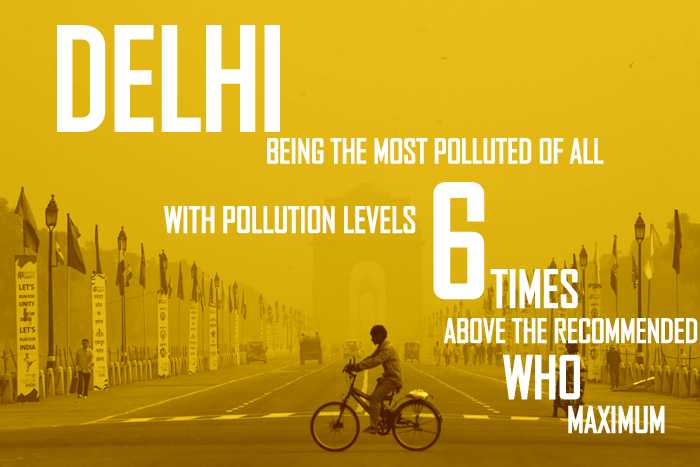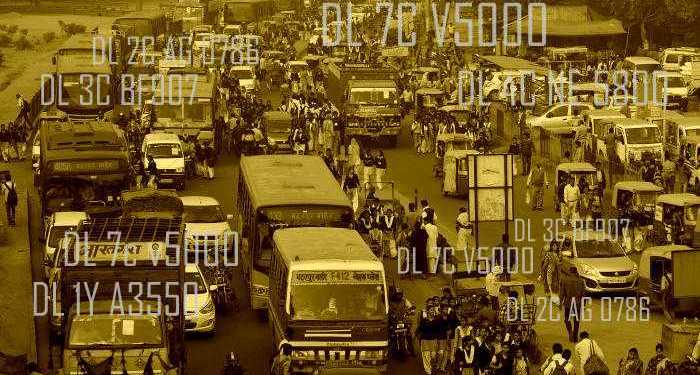There’s no question that desperate measures will be needed to combat Delhi’s pollution crisis. And the Delhi government announced precisely one of these today
OddEvenFormula : a traffic formula where private vehicles with odd and even registration numbers will be allowed on the roads of the national capital only on alternate days starting Jan 1, 2016.
While the government says the solution is a viable means to reduce vehicular emissions adding to the foul air quality, it seems ill thought through on a host of fronts.
Here, key concerns the govt needs to address before implementing this policy:
1) Where is the public transport to handle this volume of new users due to the OddEvenFormula? Considering that the national capital is still battling poor connectivity, it is unclear to what extent people can rely on public transport when not travelling by private vehicles.
2) How are lower-income households to deal with auto and taxi costs? The metro doesn’t yet connect all parts of Delhi; for lakhs of lower-income families, who may currently be using two-wheelers, this solution could disadvantage them significantly.
3) What happens if a non NCR vehicle is passing through in a vehicle with the ‘wrong day of the week’ number? Are residents of all states across the country now expected to plan driving through the capital – even if they’re not stopping – according to their car number?
4) How does the government plan to ensure the OddEvenFormula rules are followed? Do we have the manpower and bandwidth to monitor or police this massive a move?
5) The AAP government has always stood against corruption. But here is what they need to be concerned about-
- Corruption might rise as a fallout of the new road policy where people might start changing registration numbers of existing second cars.
- Taxis, autos and cab operators might raise their rates due to OddEvenFormula .
- People might start getting taxi licenses for private vehicles.
- People might resort to bribing the traffic police to get away without prosecution.

6) What if there is a medical emergency?
A person driving a medical patient might prove the urgency but what if the person has to reach somewhere to address the emergency.
7) Has the Delhi government chalked out a well-defined plan of adding vehicles to public transport before 1 January 2016, when the odd/even number policy will be implemented?
8) How will the government ensure that the public transport, which is being added in place of private transport, is reducing emissions and not just adding more to the pollution levels?
For more trending stories Visit Catch News
9) Due to the OddEvenFormula There will be a number of concerns which will rise for women safety as people will be more dependent on public transport during late hours of the night.
10) What about the people who go out at late hours and are not able to return before the next day rule get implemented. That means they will be subjected to prosecution under OddEvenFormula as they will be still be driving the car with a number which is not permitted to be out on road on that day.
11) Private companies will then also need to rejig their conveyance policies. Also, they will need to ensure putting a mechanism in place where people who might arrive late due to the public transport are not subjected to compensation.
12) A significant chunk of the upper-income population of Delhi use drivers. What happens as a fallout of this policy? Do drivers lose their jobs or are salaries renegotiated?
13) What happens if higher-income families compensate for the new rules by buying a second vehicle with even or odd numbers?
14) Under the government norms, a number of people have turned to CNG vehicles, which means their emission footprint is significantly lower than Non-CNG vehicles. Is it fair that they should also compensate under the OddEvenFormula policy?
15) One major concern is about the period of time for which the norms will be in implementation. Talking about the policies across the world, cities like Paris have implemented such rules for a limited period of time.
Also if the government is planning to follow cities like Beijing , then it is evident that there has been an extensive pre-planning put into such implementations. But such a rigorous effort is missing on the side of Delhi government.

– Salma Rehman | @RehmanSalma
First Published on Catch News
All images sourced from www.catchnews.com



























